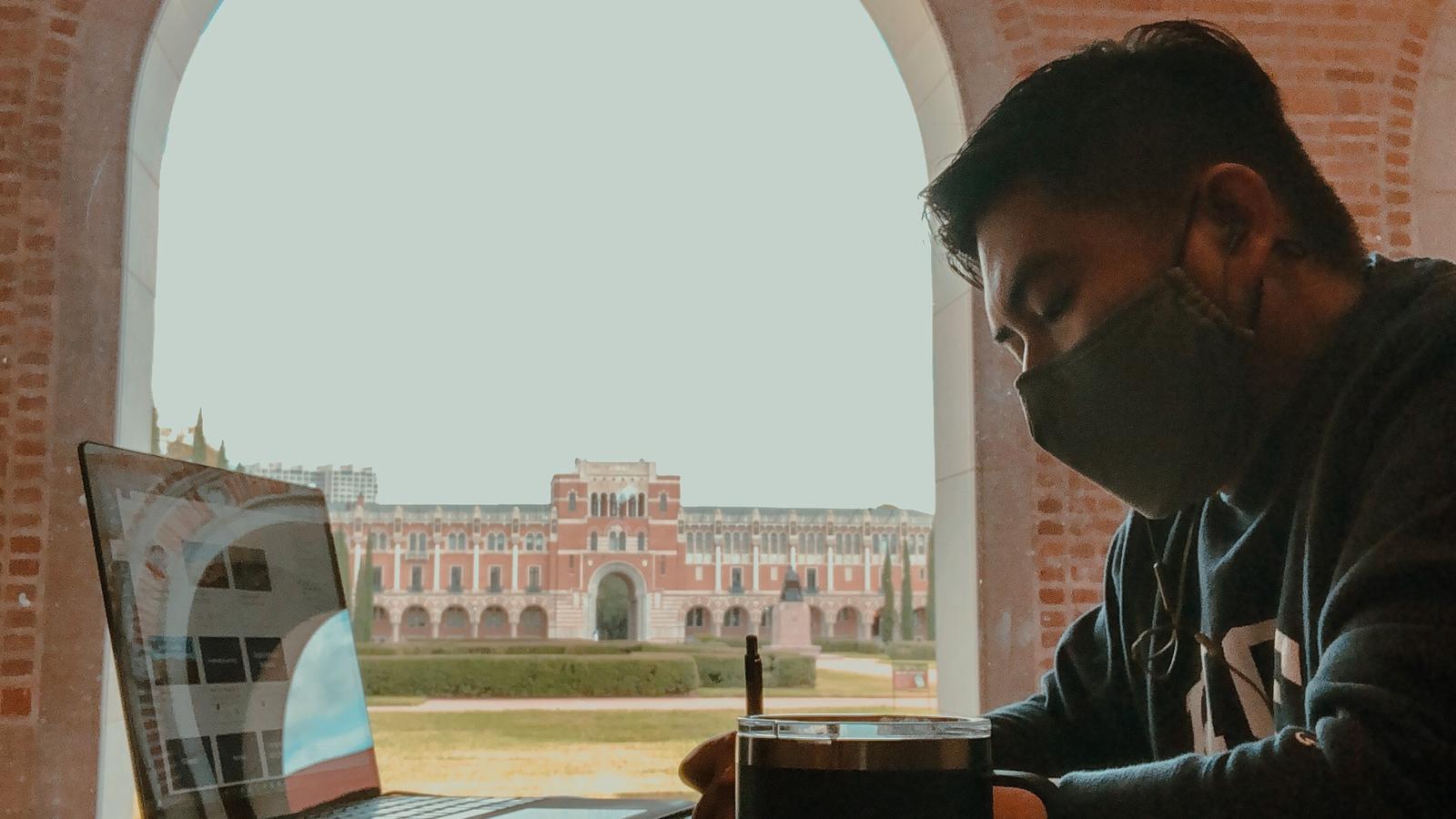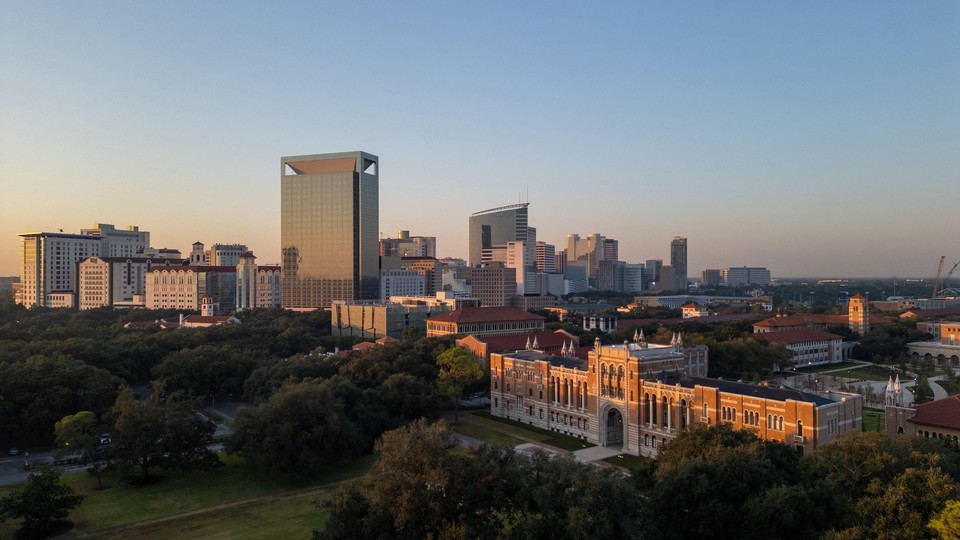Expect The Unexpected

March 5, 2020 — I got a phone call from a Houston-area number. I had been in an anxious headspace all day and struggled to stay focused. As soon as my phone lit up, I jumped in my chair and stepped outside to answer.
“Hi Nathan!” A cheerful voice greeted me. “This is Jessica from the Admissions Office at Rice Business, and I wanted to let you know that you have been admitted to the full-time MBA program for the fall!” The news left me stunned.
“Wow…” is all I could say. Feeling emotional, I leaned against the wall of the stairwell.
The road to starting my MBA was often long and lonely. As a first-generation college student and son of a Filipina immigrant and Navy veteran father, I’d focused my life on achieving, getting an education and advancing my career. But by the time I considered an MBA, I was floundering, unsure if my current field, digital marketing, was where I wanted to stay. An MBA, I thought, would help me challenge myself and pivot.
So when I got the call from Rice Business, I felt I had suddenly lucked into a ticket to re-imagine my life and career. The future never looked brighter.
Then came the rapid transition to “work from home.” New cases of COVID-19 were spreading uncertainty across the country. My visions of Houston MBA life, complete with Thursday night Partios, drinks with classmates and networking events started to fade, as Zoom info sessions started to flood my calendar. My wife, Lauren, and I agonized about upending our lives during a pandemic for what would look like a virtual MBA experience.
Nevertheless, I sent my deposit and confirmed it: I would be attending Rice in the fall.
That first semester was dizzying. Between the workload and the endless string of school-related events, the year felt like a decade. Now, with two terms completed, and with my last term of core classes almost done, I’d like to share some of the lessons I learned from starting an MBA in the middle of a pandemic.
1. It’s time to change our assumptions of being in control.
Once I started business school, I used to tell myself, the path to follow will be clear. I was flat out wrong.
I was overwhelmed by the flood of information, the case studies, the problem sets and struggling to keep up. Many days, I wondered if I’d made a mistake. The difficulty of school mixed with the accomplishments and performance of my peers left me with a deep sense of impostor syndrome. And even with hybrid classes, the severe diminishing of social activity left me feeling isolated and longing for old friends.
To my surprise, though, in the midst of all this uncertainty came new opportunities. I signed up for a program that gave me access to a mentor. Rice Business connected me with a leadership coach. I competed in the first-ever racial justice case competition. And as the months passed, I found numerous other ways to connect and get involved that I’m not sure I would have under “normal” circumstances.
I’d started out assuming I could control what was in front of me, but circumstances forced me to adapt. The truth is that while most of us like to think we’re in control that was never a trustworthy assumption — even before 2020. For those of us who like to control things, the pandemic year was a crash course in accepting that we will never be in full control.
2. Get comfortable with ambiguity.
Preparing to attend school virtually, I didn’t know what life in Houston was like aside from what other friends shared with me. There was no assurance of what the market would look like for internships, or even what the classroom experience would be like. I had only my current situation — and my opportunity to study at Rice.
That’s not unlike business, I discovered. In case studies for business school, you only have the narrative, the decision at hand, and a series of exhibits of charts and financial statements, leaving you to untangle the knots and start making sense of what’s in front of you. Sometimes the information isn’t perfect, and you’re always wanting more information or wishing you had one specific piece.
Here’s the kicker: you’re not going to get that information. And you still have to make a decision. The “risk” is never zero.
As I’ve gotten involved with the entrepreneurship and innovation space here at Rice and in Houston, I’ve grown to appreciate the mindset of getting familiar with problem spaces, testing assumptions and gathering insights to the best of my ability.
3. The most important decision is the next one.
The pandemic has definitely altered everyone’s immediate plans. But it’s also reprogrammed my own tendency to be consumed with the long-term future. I know that I have deliverables due next week, a conference to attend to tomorrow. When I get home from studying on campus, I have some catching up to do with my wife as we walk our dog. Whatever happens day by day, I realized, I can only say yes or no, do or do not, and then see where my next decision leads. It’s a hard lesson learned for a somewhat Type-A person.
Now I’m working on one thing at a time, maintaining my focus, keeping my standards high — and taking that next step. But when I look back, I can already see how far I have come. I can’t wait to see the decisions that lie ahead of me — and where my choices will lead me next.
A version of this story originally appeared in the Medium.
